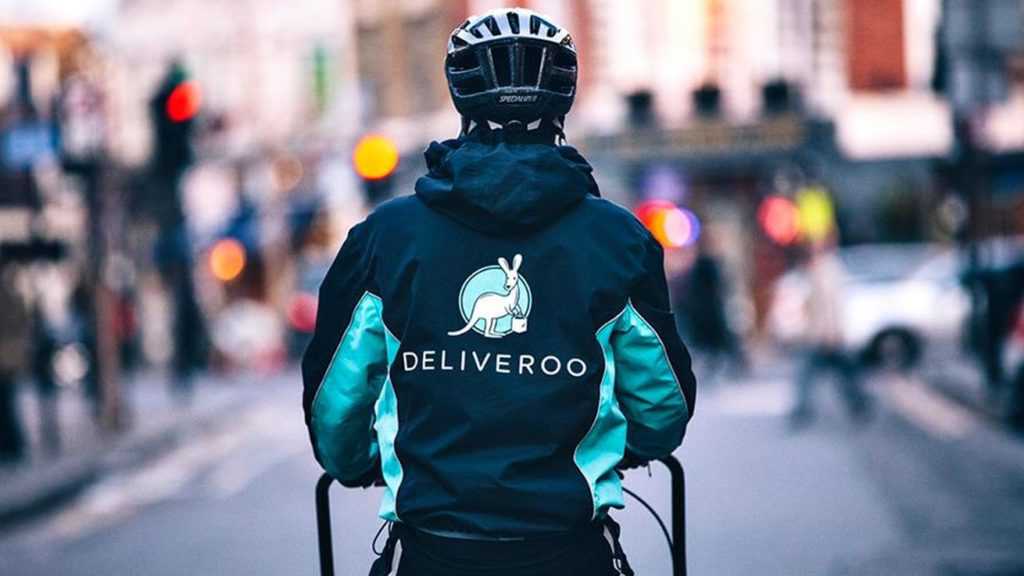Rethinking Poverty? We shouldn’t throw the baby out with the bathwater, says Kate Green MP
Posted on 16 Nov 2017 under News
How to end poverty in rich countries has been the subject of much hand-wringing over the years. When the Webb Memorial Trust kicked off our programme of work in this area in the aftermath of the biggest financial crash any of us could remember, it seemed that none of the familiar state-led solutions could be relied on. Meantime David Cameron had come to power proclaiming the role of the ‘Big Society’ in tackling intractable social problems.
It’s clear the old solutions did work to reduce poverty – while the dream of the Big Society has been exposed as mere hollow rhetoric.

Kate Green, MP for Stretford and Urmston and a trustee of the Webb Memorial Trust
In that context, claims that ‘traditional solutions don’t work’ seemed to make sense, both politically and in the world we were then experiencing. But Barry Knight’s book is published at a moment when it’s clear the old solutions did work to reduce poverty – while the dream of the Big Society has been exposed as mere hollow rhetoric.
Let’s look at previous governments’ record in this field. Between 1979 and 1997, under the Tories, child poverty doubled. Between 1999 and 2011/12, it reduced by one quarter. One million children were lifted out of poverty under Labour, and pensioner poverty halved. In the early years of the Coalition, continuation of Labour policies to protect the economy and household incomes meant that progress was sustained. But now a range of voices from the Institute for Fiscal Studies to the Resolution Foundation to the Child Poverty Action Group are predicting a significant rise in child poverty by the end of the decade, with the gains made under Labour completely wiped out. None of that is an accident – it is all a direct result of government policy.
Why Labour policies to tackle poverty did work …
The reason the ‘old’ solutions work is that they’re fundamentally about the redistribution of resources from those with more to those who are poorer. Only governments control the fiscal levers to do that, and whenever they use them effectively, we see falls in poverty. Rises in poverty come in years when investment in tax credits and benefits isn’t maintained. The predicted rise in poverty under the present Tory government is a direct consequence of cuts to, caps on, and freezing of benefits.
Of course, redistribution through the tax and benefits system isn’t the only measure that’s needed to tackle the root causes and consequences of poverty. Labour never said that it was. Our policy programme in government also set about increasing the employment rate, especially among single parents; investing in children, including our flagship Sure Start programme, building schools for the future, the introduction of the education maintenance allowance and a huge expansion in childcare; introducing modern apprenticeships and improving access to university for those from low income backgrounds; a massive increase in investment in the NHS; free travel, TV licences and winter fuel payments for pensioners; a national programme to bring social housing up to decent standards; and measures to improve social participation, covering everything from free access to museums and galleries to reducing inequality for disabled people and those from BAME backgrounds, who experience particularly high rates of poverty.
… and where they fell short
I’m very proud of those programmes, and of Labour’s achievements in government. But that doesn’t mean we have nothing to learn about what did not work. Two criticisms stand out to me now: first, that we didn’t do enough to ensure that decent work would lift everyone who could work out of poverty, and, second, that we failed to embed the progress we made, which has enabled subsequent Tory-led governments to undo so much of Labour’s transformative programme.
Barry’s appeal for us to work less rather misses the point that this situation is a reflection of low pay and lack of workplace rights.

Gig-economy companies such as Deliveroo offer flexibility, but at what price?
Of course, while work should be the route out of poverty, all too often it isn’t, and levels of in-work poverty are a scandal. But most people who can do so want to work, want to support themselves and their families through wages not benefits so far as is possible, and want economic growth that benefits them and their community. Though there’s no doubt that excessive hours are a problem for some low-paid workers, Barry’s appeal for us to work less rather misses the point that this situation is a reflection of low pay and lack of workplace rights. What most people want is good quality work, in which workers are properly valued and rewarded, productivity gains translate into improved living standards for all, the value of in-work financial support is maintained, and people enjoy autonomy and security in the workplace.
Unionisation by GMB of Uber drivers in the ‘gig’ economy and new thinking about worker representation in a context of rising, often involuntary, self-employment. These are classic examples of the traditional trade union movement building modern models of agency among dispossessed workers.
Government most certainly has a responsibility here, for example in its industrial strategy and its investment in infrastructure, in setting and enforcing the statutory minimum wage, in paying decent in-work benefits, and in protecting rights in the workplace. So, of course, do employers. And so too does the trade union movement, the embodiment of worker empowerment. New and creative thinking in the union movement is rightly focusing now on developing new models of representation and participation, such as worker membership on company boards, the unionisation by GMB of Uber drivers in the ‘gig’ economy, and new thinking about worker representation in a context of rising, often involuntary, self-employment. These are classic examples of the traditional trade union movement building modern models of agency among dispossessed workers.
The importance of agency
It’s not enough to rely on goodwill and volunteering, with government and professionals airbrushed out of the way.
In the workplace context, then, Barry is right when he suggests that an important (though not the only) component of successful anti-poverty policy lies in the agency to change things of those who experience it. It is also right that this approach has relevance beyond the workplace. The recognition that it’s the poorest and most exploited who are most likely to be denied the chance to be authors of their own future in every walk of life is of course meat and drink to a Labour movement founded on notions of equality and the empowerment of ordinary working people. Labour in government understood that – Sure Start, for example, especially in the early days, was very much led and designed by its users. But it’s not enough to rely on goodwill and volunteering, with government and professionals airbrushed out of the way. We have to acknowledge that Sure Start’s success in changing the lives of the most disadvantaged families was limited at first, and it was only when a more structured approach was introduced by government that we saw systematic improvement in outcomes.
Agency and control… ensure that lessons from those with lived experience are systematically embedded into policy-making – witness what happens when government fails to do this in the debacle that is universal credit.

According to the Guardian, a third of designated Sure Start children’s centres in England have been lost since 2010
It is also right that agency and control are essential to ensuring that hearts and minds are won over to sustain and fight for successful initiatives, and so that people can see that policies make a difference. They’re necessary too to ensure that lessons from those with lived experience are systematically embedded into policy-making – witness what happens when government fails to do this in the debacle that is universal credit, with its ludicrous six-week wait for benefits to be paid which inevitably plunges people into debt and destitution. But, for all that it’s so important to embed this agency in all aspects of policy-making, one very telling point in Barry’s book comes when he asks his interviewees who bears the responsibility for ending poverty. By a runaway margin, they respond that the greatest responsibility lies with government.
Who is responsible for ending poverty?
People experiencing poverty do want control and a seat at the decision-making table, but they are absolutely clear that the task of policy makers isn’t to wash our hands of responsibility, and say it’s all down to communities. Instead we need to find ways to design and implement policies and structures in co-production with those who feel the effects of those policies, and to agree shared goals and ways of working without compromising the independent challenge and voice provided by users. This thinking isn’t new, and we’re well aware that such an approach requires a set of complex and multiple roles, relationships and structures. But there’s no doubt in my mind that the state, with its control of public resources, fiscal and lawmaking powers, is a principal actor.
Agency is an integral part of the design of a radical programme of social change, while ensuring that nothing lets government off the hook in fulfilling its responsibility, and using its unique capacity for redistribution, regulation and investment.
Labour’s general election manifesto contains some radical components for bringing these new ways of working together – for example, placing ownership of utilities and essential infrastructure in public hands, stronger rights at work, new rights for trade unions to organise, and an approach to regional devolution which encourages the co-production of new strategies to improve socio-economic equality (and a number of good initiatives are already well under way in local government).
I recognise these solutions may sound like the old record – doing things to people in hierarchical structures. But they need not preclude agency; indeed they offer an opportunity to include agency as an integral part of the design of a radical programme of social change, while ensuring that nothing lets government off the hook in fulfilling its responsibility, and using its unique capacity for redistribution, regulation and investment
A book that starts to unpick how that jigsaw fits together, that looks at how empowerment, agency and challenge sit with government’s obligation to develop and implement effective pro-poor policies, could indeed stimulate and help to create sustainable policy solutions. It could shape the programme of an incoming Labour government to build on and embed past Labour successes. It would go with the grain of what people say they want, rather than throwing the baby out with the bathwater. That’s the book I want to read – the manual for how we collectively end poverty in Britain for ever.
Kate Green is MP for Stretford and Urmston, a trustee of the Webb Memorial Trust and former chair of the APPG on Poverty
This blog was originally posted on the Webb Memorial Trust website
Read more from the Rethinking Poverty discussion forum:
- EVENT: 4 Dec 2017 – Rethinking Poverty with Andy Burnham. Can Manchester lead the way?
- How to reinvent the welfare state for a new political era – Barry Knight writes in the New Statesman
- Democracy is Alive – David Bonbright on parallels between Rethinking Poverty and Constituent Voice


Comments